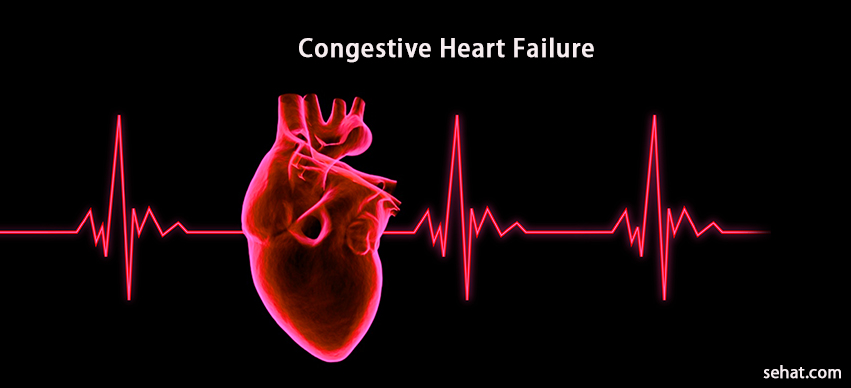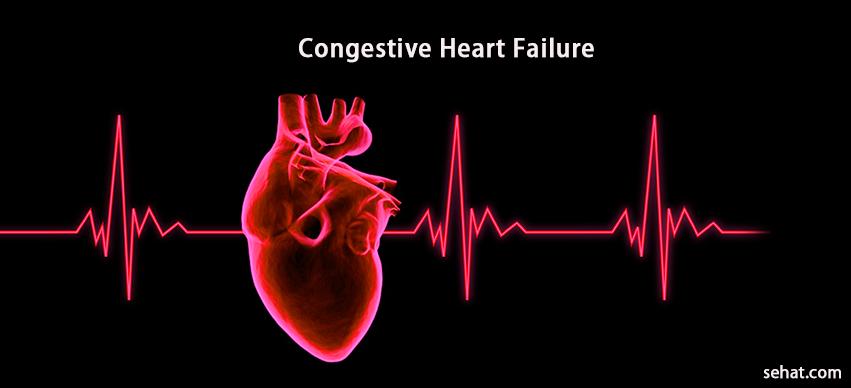How Communities Are Changing the Way We Think About Aging in..
8 Min Read


Congestive Heart Failure (CHF) is a condition that occurs when the heart cannot pump blood efficiently to meet the body's needs.
Congestive Heart Failure is a chronic condition that prevents the filling or emptying of blood from the heart. CHF is caused due to a structural and/or a dysfunctional abnormality. The common clinical manifestations include shortness of breath, edema, and weight gain.
[Also Read: Causes of swollen hands and feet]
By understanding the congestive heart failure - stages, causes, and treatment, one can manage the condition if it is in the early stages and the knowledge on the preventive steps will help avoid the occurrence.
It is the most common type of congestive heart failure. As the disease progresses, the left ventricle of the heart cannot pump blood efficiently out to the body. With further progression, fluid builds up in the lungs, making it difficult to breathe.
There are two types of left-sided heart failure;
This occurs when the right ventricle is unable to pump blood efficiently to the lungs. Blood backs up into the blood vessels, causing fluid retention in the legs, ankles, and abdomen.
Both left-sided and right-sided CHF can occur at the same time. But usually, the onset is on the left side, which then travels to the right when the condition is left untreated.
The early stages of the disease may not cause any symptoms, but as the disease progresses, one may notice gradual changes in the body. These include;
| Symptoms - Early Condition | Symptoms - A Worsened Condition | Symptoms - Severe Condition |
| Fatigue | Irregular heartbeat | Chest pain that radiates to the upper body |
| Swelling - legs, ankle, abdomen | Cough because of congestion in the lungs | Rapid breathing |
| Weight gain | Wheezing | Lack of oxygen in the lungs makes the skin appear blue |
| Increased urge to urinate at the night | Difficulty breathing that may indicate pulmonary edema | Fainting |
Symptoms of congestive heart failure in children may include poor feeding, undue sweating, and difficulty breathing.
Many diseases can impair the heart's pumping efficiency, causing congestive heart failure. The most common causes include;
This refers to the condition where cholesterol and other fatty substances block the small arteries that supply blood to the heart (coronary arteries). It causes narrowing of the arteries, that restricts the blood flow and damage the arteries.
High blood pressure causes the narrowing of arteries making it harder for the blood to flow through them.
Can damage the cells of the heart muscle and causes the weakening of the heart.
The valves of the heart open and close to regulate blood flow with each heartbeat. In case a heart valve is not opening properly or is leaking blood backward, the heart loses its ability to pump blood efficiently.
Other less common causes include;
The stages of congestive heart failure;
| Stage | Main symptoms |
| Class I | No symptoms and no limitations during typical physical activity. |
| Class II | Mild symptoms such as fatigue, palpitations, shortness of breath, and/or angina. Slight limitations during ordinary activity. The patients feel comfortable at rest. |
| Class III | The patients may feel comfortable at rest but may experience limitations even during light physical activity like walking short distances. Mild exercise may also cause palpitations, fatigue, or shortness of breath. |
| Class IV | Severe limitations where the patients experience the symptoms even at rest. |
Common tests to diagnose congestive heart failure include;
ECG helps in assessing the heart rate, rhythm, and indirectly, the size of the ventricles. The test helps to evaluate the blood flow to the heart muscle.
A complete blood count (CBC), electrolytes, glucose, creatinine, and BUN (blood urea nitrogen test) to assess the function of the kidneys.
BNP test is done to know if a patient has shortness of breath because of congestive heart failure or another cause. BNP is a chemical in the ventricles of the heart, which is released when the muscles are overburdened.
Echocardiography helps assess the anatomy and function of the heart valves and muscles. The test helps to look at the blood flow within the heart and contraction of the heart muscle and measures the percentage of blood ejected with each heartbeat.
Other tests include MRI (to look for damages in the heart with the help of pictures), stress test (to study the performance of the heart at different stress levels), and cardiac catheterization (to detect blockages in the coronary arteries).
The aim of treatment is to make the heart pump blood more efficiently so that it meets the body’s requirements. Specific treatment depends on the underlying cause. These include;
ACE inhibitors dilate or widen the blood vessels to increase blood flow.
Beta-blockers reduce blood pressure and slow down the rapid heart rhythm.
Diuretics reduce fluid content in the body as CHF can cause fluid retention in the body.
If medications are not effective, the doctor may recommend surgery. The surgical procedures include;
Although some factors are genetic, lifestyle plays an important role. There are several measures that can lower the risk of congestive heart failure or help in delaying the onset.
These simple lifestyle changes can help protect your heart.
The information on congestive heart failure - stages, causes, and treatment can help understand the condition and seek medical attention if required.